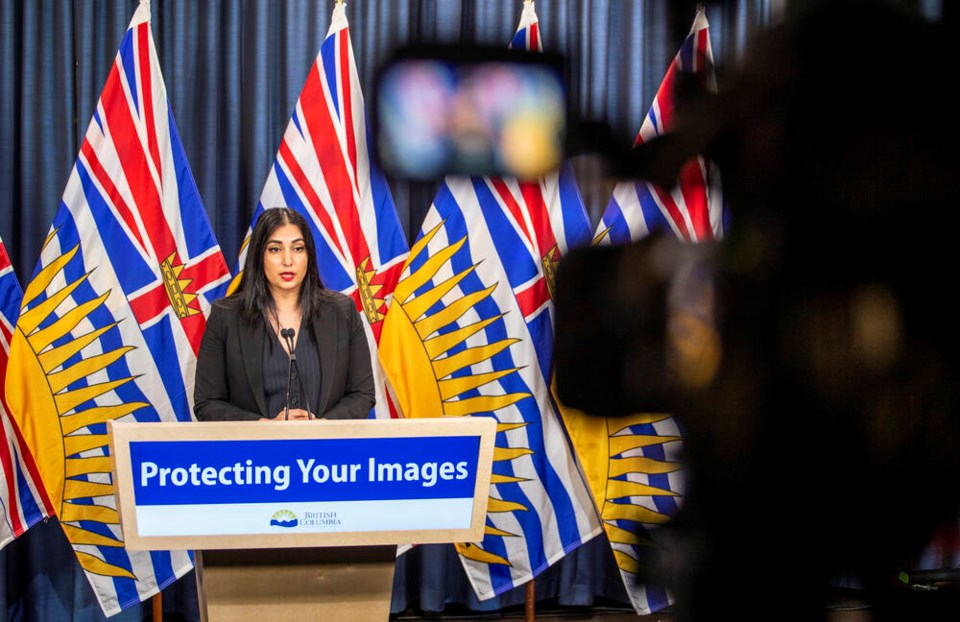B.C. must defend the province’s longstanding system of private land ownership, and cannot allow for the uncertainty left by a new BC Supreme Court ruling on Aboriginal rights and title, says the attorney general.
Niki Sharma said the BC NDP government is appealing the precedent-setting case involving Cowichan Nation lands in the City of Richmond because the judge’s ruling that Aboriginal title exists above fee simple private land rights leaves too many questions about the impact on British Columbians who own property and businesses.
“Those are the arguments that we led in court, is that our Land Title Act means something, and having title to a property means something, and that's why we're appealing,” Sharma said in an interview.
“This decision, we think, it needs a higher-level court intervention to help us delineate that line clearly. And we'll be pursuing that in every way we can within the court.
“I think what the court has said in this decision leaves a lot of lack of clarity, in my view, about that line. So it's our job to defend our Land Titles Act, defend our property ownership regime, and work towards what the constitution requires us.”
The case is so complex, and has so many implications, that it requires the BC Court of Appeal or the Supreme Court of Canada, said Sharma.
“We really need to ask a higher level of court to take a look at the way this decision landed and help pave a pathway that we think should give more security to somebody that was a fee-simple land owner that was an innocent party, and their rights and our evolution of reconciliation Aboriginal title, which is a big question,” she said.
The court ruling has sparked intense debate about the impact of ongoing reconciliation policies on existing private landowners.
For some, it is the culmination of fears expressed as far back as when the BC NDP government enacted the Declaration on the Rights of Indigenous Peoples Act. Since then, concerns that Indigenous rights and title could supersede people’s private property rights have been raised in several political debates, including proposed Land Act amendments (which the NDP backed down on last year) and a government land agreement with the Haida Nation in 2024.
Premier David Eby and his cabinet have long insisted negotiated agreements with First Nations communities remain preferable to court action because they allow the exclusion of any changes to private property rights, as occurred in the Haida deal.
It’s a position Sharma continued to express Tuesday, saying the BC Supreme Court ruling highlights the shortcomings of the court system.
Leaders from the Cowichan Nation on Monday indicated they want the return of the lands identified as their traditional territory in the City of Richmond, which also include federal port land as well as some privately held industrial and agricultural land.
The nation’s lead counsel, David Rosenberg, said the initial expectation would be for negotiations with the provincial and federal government. There is no immediate impact on private land owners in the area, though, he admitted there could be in the future if owners tried to sell.
“I don’t think the private property holder’s interests will be directly affected,” Rosenberg told CKNW host Jas Johal.
“In other words, I fully anticipate, and this is still me speaking again, that the seller or vendor will get what they are bargaining for, and the purchaser would also get what they are bargaining for, but it would be with the consent of the Cowichan Nation and it would be with some accommodation from the Crown to the Cowichan Nation.”
That may still throw a legal wrench into the system.
Requiring consent for alterations or sale of previously purchased private land may undercut the principle of B.C.’s fee-simple land ownership law, which then introduces untenable risk to owners and businesses.
It certainly changes the intent behind B.C.’s fee-simple land act process, which is supposed to be clear, said Sharma.
“Once somebody who is an innocent purchaser of land has purchased it, generally our law says that that title, irrespective of what happened before, is free and clear for that landowner,” she said.
The exact legal arguments B.C. will use for its appeal have yet to be selected, said Sharma. Lawyers are still studying the 863-page judgement—which took five years just to reach this point, and is likely to take many more years until it is resolved definitively by a higher court.
Rob Shaw has spent more than 17 years covering B.C. politics, now reporting for CHEK News and writing for The Orca/BIV. He is the co-author of the national bestselling book A Matter of Confidence, host of the weekly podcast Political Capital, and a regular guest on CBC Radio.
🚨New newsletter alert! Stay ahead of the curve in B.C. politics. Get expert political analysis delivered straight to your inbox, plus inside scoops and other stories from across the province. Sign up here for the Capital & Coast newsletter.



